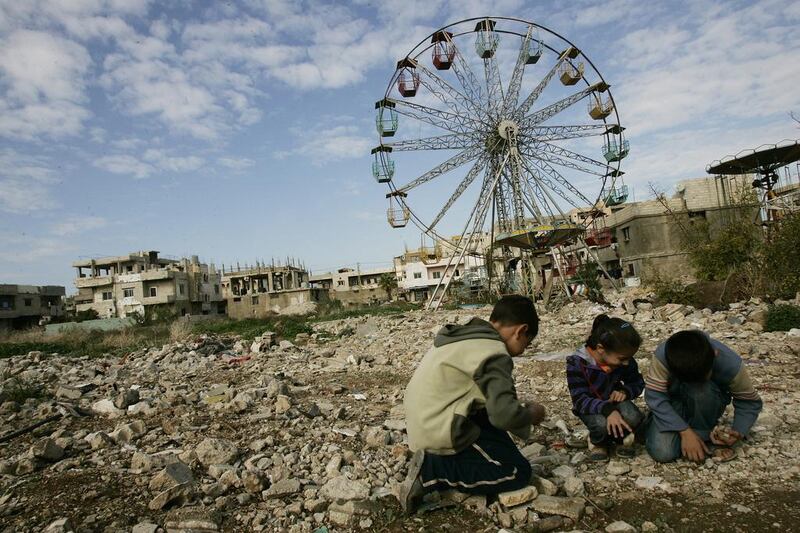In 1971, I was in Beirut on a university grant to conduct research for my doctoral dissertation on the emergence of Palestinian consciousness. I set about to visit Ain Al Hilweh refugee camp to interview families.
Then I met the novelist Ghassan Kanafani, who told me that I was looking in the wrong place. The stories I had collected were important but they were frozen in the past. The real story, he said, was unfolding in Israel among the Arabs who had stayed behind after 1948. They were the most interesting and politically advanced portion of the Palestinian community who were evolving a new consciousness. Someday, he insisted, they may very well lead the way.
Kanafani introduced me to the poetry of Mahmoud Darwish, Tawfiiq Zayyed and Sameh Al Qassim, and I was struck by their love of their land, their resistance to Israeli efforts to strip them of their heritage, and of the boldness of the challenge they presented to their oppressors.
So, I changed the focus of my dissertation and titled it Arabs in the Promised Land: the Emergence of Palestinian National Consciousness among the Arabs in Israel, from 1948 to 1967. I have retained my fascination with this component part of the Palestinian people, and I celebrated the remarkable victory of the Joint List – the unified slate of Arab parties – in the recent Israeli elections. I have been excited by the early steps they have taken, from their unequivocal rejection of Benjamin Netanyahu's lame effort to apologise for using them as "bait" to incite rightist voters to turn out on election day to the call of their leader, Ayman Odeh, to mobilise a peaceful demonstration to challenge the government's plan to forcibly resettle the 100,000 Bedouin of the Negev.
With 13 seats in the Knesset, the Joint List is now the third largest party in Israel. Representing a community that is 20 per cent of Israel’s population, they will, in the words of Zayyed, remain a heavy weight on the heart of the state that seeks to deny them their legitimate right to remain in their land.
The success of the Palestinian Arab citizens of Israel did not come easy. After 1948, the 160,000 Arabs who remained in the “Jewish state” faced extreme hardships. For the first decades of Israel’s existence, they were denied the right to form an independent party. Arab-owned lands were confiscated and Arabs were subject to harsh military justice including curfews, collective punishment, arbitrary arrest and summary expulsion. Israeli leaders referred to them as “aliens”, “strangers in our land”, “a cancer in our midst” and “a demographic time bomb”. Arabs in cities such as Nazareth lost control of their adjacent lands, which were used to build Jewish-only communities.
Because only the Communist Party would accept them as full members, many Arabs joined it, transforming it into a substitute nationalist party. When in the 1970s, the Arabs of Nazareth elected Zayyed as their mayor, the Israeli government punished them for their insolence by cutting off state funding to the municipality. In response, Zayyed organised international youth camps, welcoming thousands of volunteers to come to the city to help with construction projects.
A critical turning point came 40 years ago when Israel announced plans to “Judaise the Galilee” by confiscating more land to build Jewish-only communities. The Arabs called for a national strike and mass mobilisation on May 30, 1976. The Israelis reacted brutally, killing six and injuring 100. This inspired and empowered the Arab community, and March 30 is commemorated as Land Day.
While the Joint List includes a number of disparate groups, they are unified in their resolve to remain on their land and steadfast in their struggle to fight for their rights. Despite the different positions of their parties, Zogby Analytics polling shows a remarkable consensus in the political views of the Arab community. They are more forward looking on most issues than either Israeli Jews or Palestinians from the occupied territories. They support an end to the Israeli occupation and the establishment of a two-state solution and they support the rights of the refugees. They strongly support both the Arab Peace Initiative and the parameters of the Clinton peace proposal. And they insist that their future is in their native land, demanding equal rights on all levels, equal funding for education and other public services, and an end to discriminatory laws.
It is because of this history that I shudder when I hear liberals argue that Israel must end the occupation to remain “Jewish and democratic”. The reasons to end the occupation are because it is immoral and illegal, and because it has caused enormous hardship to millions. And the notion that a state can favour one group and still be democratic is impossible.
Mr Netanyahu’s promise to be the prime minister of all the citizens is lame precisely because this is what Israel has never been. His effort to pass a “Jewish Nation State” law in the last Knesset and his promise to revisit it in the next government makes clear his intention.
The Palestinian Arab citizens of Israel have fought for their rights for 67 years and continue to advance in their struggle. As we approach this year’s Land Day, keep your eyes on this remarkable community. They do, indeed, point the way forward.
James Zogby is the president of the Arab American Institute
On Twitter: @aaiusa





